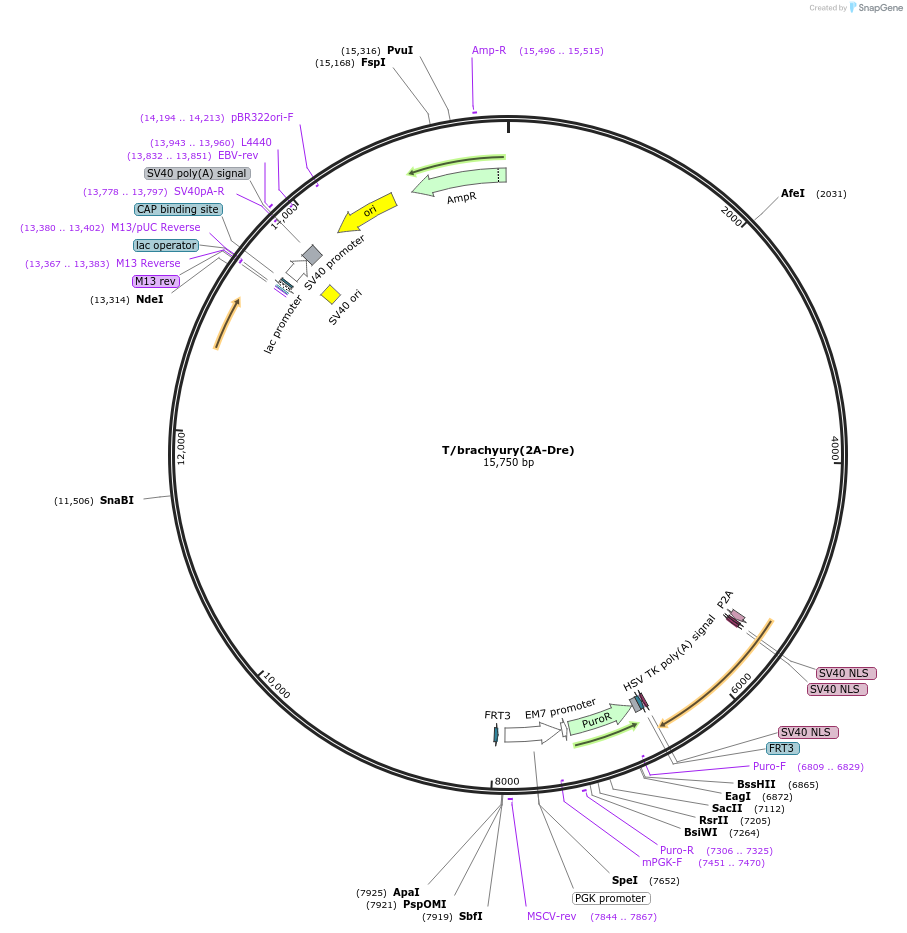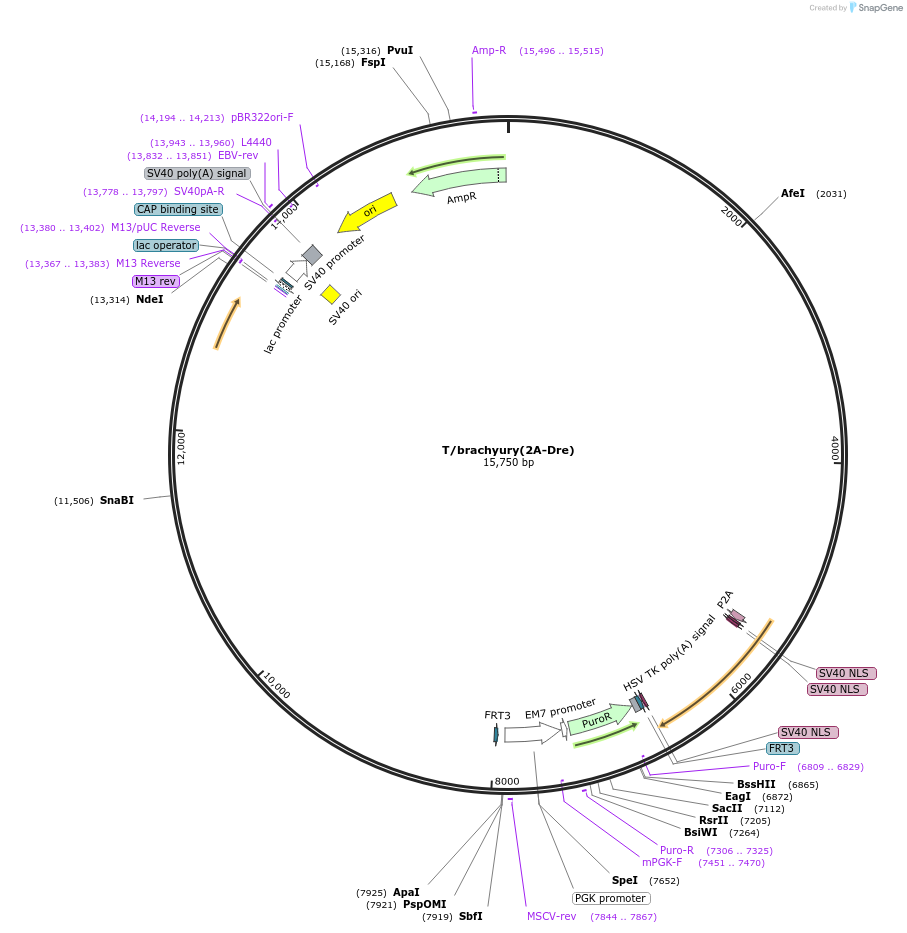T/brachyury(2A-Dre)
(Plasmid
#140761)
-
PurposeTargeting vector to T/brachyury gene locus for induction of P2A-fused Dre, with PGK-EM7-puroR drug resistant cassette flanked by FRT(F3) sequence.
-
Depositing Lab
-
Sequence Information
Ordering
| Item | Catalog # | Description | Quantity | Price (USD) | |
|---|---|---|---|---|---|
| Plasmid | 140761 | Standard format: Plasmid sent in bacteria as agar stab | 1 | $89 | |
Backbone
-
Vector backbonepCAGGS
- Backbone size w/o insert (bp) 2396
- Total vector size (bp) 18841
-
Vector typeMouse Targeting
-
Selectable markersPuromycin
Growth in Bacteria
-
Bacterial Resistance(s)Ampicillin, 100 μg/mL
-
Growth Temperature37°C
-
Growth Strain(s)DH5alpha
-
Copy numberUnknown
Gene/Insert
-
Gene/Insert nameDre
-
SpeciesSynthetic
-
Insert Size (bp)1074
- Promoter Endogenous T/brachyury
Cloning Information
- Cloning method Ligation Independent Cloning
- 5′ sequencing primer n/a
- 3′ sequencing primer n/a
- (Common Sequencing Primers)
Resource Information
-
Supplemental Documents
-
A portion of this plasmid was derived from a plasmid made byDre was cloned from pCAGGS-dre-ires-puro (a gift from A. Francis Stewart; Anastassiadis et al., Dis. Model. Mech. 2, 508-515, 2009).
Terms and Licenses
-
Academic/Nonprofit Terms
-
Industry Terms
- Not Available to Industry
Trademarks:
- Zeocin® is an InvivoGen trademark.
These plasmids were created by your colleagues. Please acknowledge the Principal Investigator, cite the article in which the plasmids were described, and include Addgene in the Materials and Methods of your future publications.
-
For your Materials & Methods section:
T/brachyury(2A-Dre) was a gift from Hideyuki Okano (Addgene plasmid # 140761 ; http://n2t.net/addgene:140761 ; RRID:Addgene_140761) -
For your References section:
Developmental analyses of mouse embryos and adults using a non-overlapping tracing system for all three germ layers. Serizawa T, Isotani A, Matsumura T, Nakanishi K, Nonaka S, Shibata S, Ikawa M, Okano H. Development. 2019 Nov 4;146(21). pii: dev.174938. doi: 10.1242/dev.174938. 10.1242/dev.174938 PubMed 31597657








